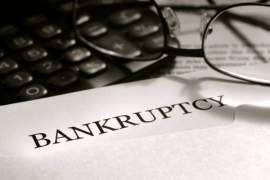
Facts to Consider Before Filing for Chapter 13

Related Forms
Order Discharging Debtor Before Completion of Chapter 13 Plan
Discharge of Debtor After Completion of Chapter 13 Plan
Order Confirming Chapter 13 Plan
Order Fixing Time to Object to Proposed Modification of Confirmed Chapter 13 Plan
Chapter 13 Debtor's Certifications Regarding Domestic Support Obligations and Section 522(q)
View AllCertainly, the information that Chapter 13 applicants might find the most useful is that which will lead to the success of a restructuring plan or even a Chapter 13 bankruptcy discharge. As such and in turn, the most useful information in this section of the Bankruptcy Code may be the Chapter 13 rules that govern and/or restrict such benefits for debtors.
Some of these Chapter 13 rules are indeed pretty specific, and may contain pitfalls that may go overlooked by people who fail to properly review these laws. A Chapter 13 bankruptcy discharge may be refused for particular recurring debts/expenses, or the appointed trustee may throw out a petitioner's case altogether. The following are some notes on the potential complications of relief for debtors alongside Chapter 13 rules:
Different forms of bankruptcy give debtors varying amounts of latitude with how they restructure their debt. In the case of Chapter 9 debtors, which are whole municipalities, under the Bankruptcy Code, their reorganization strategies permit taking out a new loan as a means of debt management. Unless given explicit permission by the case trustee, Chapter 13 rules dictate that applicants may not accrue any new debt while they move to repay creditors.
The reasoning behind this, which really is based on common sense, is that debtors should not be taking out additional loans that may affect their ability to compensate lenders moving forward, especially when they have not evidenced an ability to meet financial obligations on a regular basis. Depending on their circumstances, petitioners seeking a complete Chapter 13 bankruptcy discharge may find some debts may not be able to be negated so easily, if at all.
According to Chapter 13 rules, some financial requirements may not be able to be avoided, as their consistent payment is legally necessary. The types of monies that may not be eligible for Chapter 13 bankruptcy discharge include alimony/child support, mortgage payments, restitution to victims for injurious acts of criminality, student loans and taxes. While Chapter 13 rules thus have the power to significantly limit individuals applying for relief, at the same time, they take extreme circumstances under consideration, cutting debtors some slack, so to speak.
A special type of Chapter 13 bankruptcy discharge known as a "hardship discharge" may be available to petitioners in the event something happens beyond their control that prevents them from making their payments as planned. Usually, this "something" is a serious illness or injury that prevents a debtor from working/being gainfully employed.
NEXT: Facts to Know About Chapter 13 Governing Laws





















